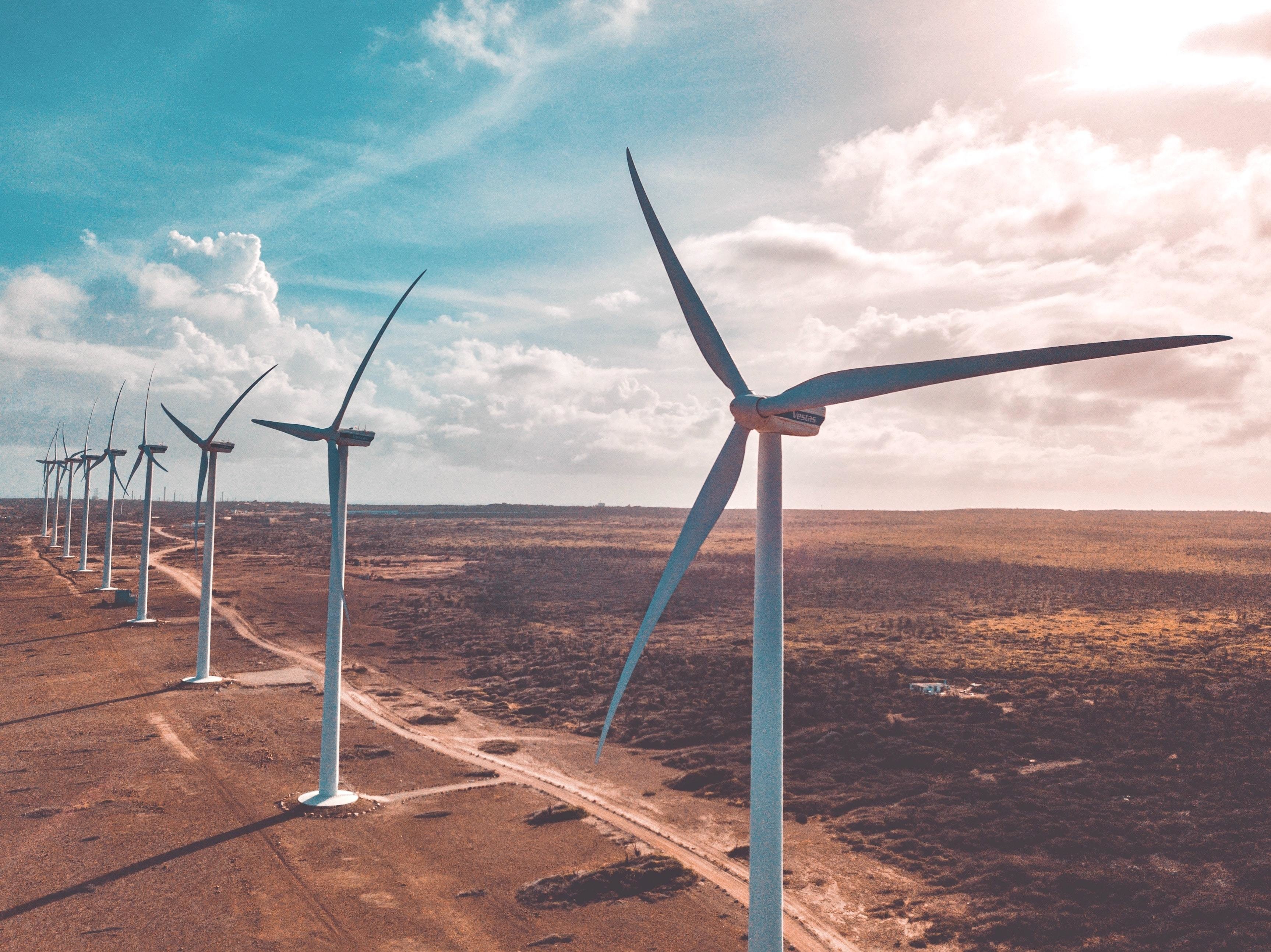We can't wait to act! Here’s how to get to net zero emissions

Net zero emissions commitments from companies ranging from automobile giants to major energy players to consumer goods producers have doubled in 2020. Image: Rabih Shasha/Unsplash
Anthony Robert Hobley
Executive Fellow, Strategic Engagement, Centre for Nature and Climate, World Economic Forum Geneva
Get involved with our crowdsourced digital platform to deliver impact at scale
Stay up to date:
Decarbonizing Energy
- COVID-19 has caused the largest emissions drop since World War II, giving us a head start on limiting global temperature rise by 2030.
- Companies have a major responsibility in these efforts and have made substantial commitments in 2020 to reach zero emissions.
- Air pollution, climate change, and environmental destruction will cause many deaths if action is not taken.
In order to avoid irreversible damage to our societies, economies and the natural world, we must limit global temperature rise to 1.5°C above pre-industrial levels.
But with a 2018 report by the Intergovernmental Panel on Climate Change (IPCC) stating that global warming is likely to reach just that between 2030 and 2052 — assuming it continues at the current rate — intervention is required on a mass scale.
The race to zero emissions
Several multistakeholder efforts are involving the private sector in the solution. The United Nations Global Compact launched the Business Ambition for 1.5°C campaign which called on companies to commit to ambitious emissions reduction science-based targets.
As of 3 November 2020, 314 companies had signed the commitment.
The World Economic Forum’s Race to Zero Dialogues aims to amplify these efforts, with a goal to halve greenhouse gas emissions by 2030 and hit net zero emissions by 2050. It mobilizes a coalition of leading net-zero initiatives, representing 120 countries, 452 cities, 22 regions, 1,101 businesses, 45 investors and 549 universities. Collectively, these actors cover nearly 25% of global CO2 emissions and more than 50% of global GDP.
The Mission Possible Platform, a collaboration between the World Economic Forum and the Energy Transitions Commission, is working with over 300 companies from the so-called “harder-to-abate” industrial sectors to operationalise the decarbonisation of sectors such as steel, cement, shipping and even aviation in line with net-zero pathways.
A race to zero emissions means a race to zero deaths.
”Rebuilding after COVID-19
The COVID-19 pandemic has caused the largest emissions drop since World War II, but it remains to be seen how the global recovery will shape the zero emissions trajectory. Companies can do four major things to make a difference:
First, they must demonstrate transparency in reporting emissions publicly. Second, they should show leadership by committing to reducing their emissions. Third, they must act on these commitments and report progress. And fourth, they should join relevant initiatives and alliances.
Leading on climate action
There is hope: Net zero emissions commitments have doubled in 2020 during the global pandemic, according to research by NewClimate and Data Driven EnviroLab.
For example, more energy companies are committing to end their contribution to greenhouse gas emissions – including household names like BP, Shell, Enel, Iberdrola and EDF.
Microsoft aims to be climate-negative for all three scopes by 2030, and to remove all the carbon the company has emitted either directly or indirectly by electrical consumption since it was founded in 1975. It has also launched a $1 billion fund for CO2 removal.
Amazon has set the goal of being net-zero by 2040, with 100% renewable power by 2030. BMW projects a 30% reduction in CO2 produced per car, including across their supply chain. And Unilever is making the shift to carbon-positive manufacturing by eliminating fossil fuels from their operations. It will invest €1.13 billion ($1.8 billion) into a climate and nature fund.
Net-zero decarbonization and investing in nature-based solutions go hand in hand. However nature performs moves the goal posts for climate targets; they are intrinsically linked.
A race to zero emissions means a race to zero deaths caused by air pollution, climate change and environmental destruction. We can’t afford to wait.
This article originally appeared on Business & Industry.
Don't miss any update on this topic
Create a free account and access your personalized content collection with our latest publications and analyses.
License and Republishing
World Economic Forum articles may be republished in accordance with the Creative Commons Attribution-NonCommercial-NoDerivatives 4.0 International Public License, and in accordance with our Terms of Use.
The views expressed in this article are those of the author alone and not the World Economic Forum.
Related topics:
The Agenda Weekly
A weekly update of the most important issues driving the global agenda
You can unsubscribe at any time using the link in our emails. For more details, review our privacy policy.
More on Energy TransitionSee all
Tarek Sultan
April 24, 2024
Jennifer Holmgren
April 23, 2024
Ella Yutong Lin and Kate Whiting
April 23, 2024
Nick Pickens and Julian Kettle
April 22, 2024
Katie Fedosenko and Luciana Gutmann
April 15, 2024






